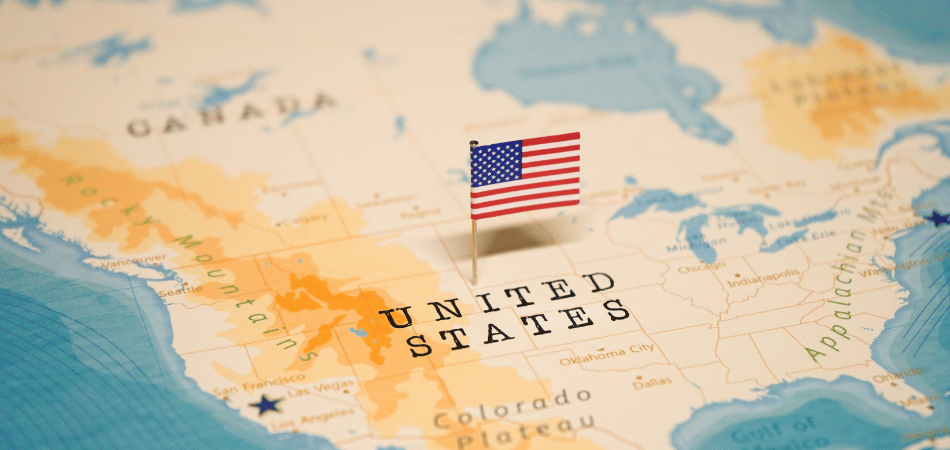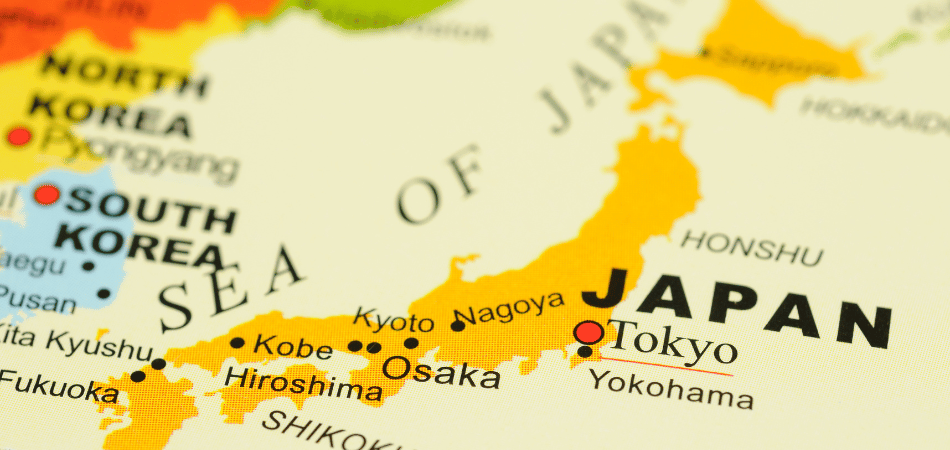Last Updated:
January 19th, 2024

The approaches to recovery vary significantly across different cultures, reflecting diverse attitudes towards addiction, mental health, and rehabilitation. We will explore the cultural differences in recovery approaches in America, India, and Japan, shedding light on how each society addresses the challenges of addiction.

Recovery approaches in America
Addiction recovery in the United States is diverse, cut with historical influences and evolving attitudes toward mental health. America’s approach to recovery has a variety of methodologies that reflect the nation’s commitment to individualism and a growing awareness of the connectivity between addiction, mental health, and societal well-being.
Central to American recovery are the twelve-step programmes, most notably Alcoholics Anonymous (AA) and Narcotics Anonymous (NA). These programs, rooted in the principles of mutual support, have become a cornerstone in the United States. The concept of peer support and the emphasis on spiritual strength resonate with individual autonomy and personal growth. Millions of Americans find recovery through these programmes.
Beyond twelve-step programs, the American approach to recovery encompasses a wide range of evidence-based therapies. Cognitive-behavioural therapy (CBT), motivational enhancement therapy (MET), and dialectical behaviour therapy (DBT) are among the therapeutic means embedded in recovery methods. The diversity of available treatments reflects a cultural commitment to incorporating different approaches to meet the individualised needs of those seeking recovery.
Furthermore, harm reduction strategies are now more prominent, particularly in response to the opioid crisis. The shift towards seeing addiction as a public health issue rather than just a criminal one that should be punished has led to the widespread distribution of naloxone. This life-saving medication reverses opioid overdoses. This reflects an increased recognition of the need for pragmatic solutions.
American culture also tries to destigmatise addiction and mental health. Celebrities and public figures openly share their recovery journeys and contribute to a more inclusive discourse surrounding addiction. The cultural shift towards acknowledging mental health as an integral component of well-being has fostered an environment in which seeking professional help is now normalised.
The availability of a large range of treatment centres and recovery communities across the country reflects the commitment to supporting individuals throughout their recovery. These communities tend to cater to specific demographics.
However, challenges persist within recovery in America. Disparities in access to quality treatment, influenced by socioeconomic status and race factors, highlight the need for a more inclusive approach. Additionally, the narrative around addiction recovery is not immune to the influence of media and popular culture, which can sometimes perpetuate stereotypes or unrealistic expectations.

Recovery approaches in India
India’s recovery landscape reflects a balance between wisdom and the evolving modernity of substance abuse issues.
Traditional practices:
Traditional practices rooted in ancient wisdom are at the heart of India’s recovery philosophy. Yoga and meditation originated in India and have been integrated into rehab programmes. The ideas that underpin these practices align with the belief in the holistic connectivity of the mind, body, and spirit. These techniques offer physical well-being and nurture mental resilience, leaving no stone unturned.
Ayurvedic principles:
Ayurveda, the traditional Indian system of medicine, emphasises the restoration of balance and harmony within the body. In the context of addiction recovery, Ayurvedic principles guide interventions that focus on detoxification, nutrition, and mental well-being. Recognising each individual’s unique constitution (dosha) in Ayurveda informs personalised treatment plans, reflecting a cultural appreciation for holistic healing.
Spiritual integration:
India’s diverse religious landscape also influences recovery approaches. Many rehabilitation programs incorporate spiritual components tailored to match individuals’ religious beliefs. The cultural acceptance of spirituality as a core element of recovery aligns with the broader understanding that addiction is not just a physical ailment but a complex mix of the physical, mental, and spiritual.
Family-centric approach:
Family plays a pivotal role in India’s recovery dynamics. It emphasises strong family ties; interventions often involve family therapy and support. Understanding and addressing familial dynamics is considered essential in the recovery process, acknowledging that addiction affects not only the individual but also the larger family unit.
Incorporation of Western therapies:
In response to the changing landscape of addiction, India has embraced Western therapeutic approaches, recognising the importance of evidence-based interventions. Cognitive-behavioural therapy (CBT) and group therapy are integrated into treatment protocols. This reflects an openness to incorporating effective methodologies from diverse sources.
Cultural diversity:
India’s cultural diversity contributes to variations in recovery approaches across regions. Different cultural nuances shape the understanding of addiction, and interventions often incorporate local customs to make the recovery process more relatable. Tailoring recovery programs to suit the cultural context ensures individuals feel supported.
Stigma and mental health awareness:
Despite strides in incorporating different approaches, India faces challenges related to the stigma surrounding mental health issues. Cultural stigma is often a barrier to seeking help, necessitating increased efforts to raise awareness, destigmatise addiction, and promote open conversations about mental health.
India’s approach to addiction recovery is rich and nuanced, and it mixes wisdom, spirituality, and therapeutic interventions. The cultural acceptance of holistic healing, the emphasis on family, and the integration of diverse practices highlight a dynamic approach that adapts to the evolving needs of individuals seeking recovery in the diverse cultural landscape of India. Recognising the strength of tradition while embracing the benefits of modern psychological tools is central to the country’s endeavour to provide culturally sensitive support for people trying to recover.

Recovery Approaches in Japan
Recovery in Japan reflects a culture of collective support, societal expectations, and the influence of historical experiences.
Zero-tolerance policy:
Japan’s historical encounter with drugs, particularly during the Meiji era, led to the country’s zero-tolerance policy towards drug use. It is not merely a legal stance; it reflects a deeply ingrained cultural belief that substance use poses a threat to social order and individual well-being. The often extreme legal consequences for drug offences serve as a deterrent and a reflection of Japan’s commitment to maintaining social harmony.
Group therapy and collective support:
One of the distinctive features of the Japanese approach to recovery is the emphasis on collective support. Group therapy plays a significant role in rehab programmes, reflecting the cultural value placed on shared responsibility. The belief in the spiritual connectivity of individuals within a community aligns with the cultural emphasis on social harmony. Recovery is not just an individual journey but a communal effort.
Stigma and social expectations:
Despite the communal support, the cultural stigma surrounding mental health issues and addiction persists in Japan. The hierarchical nature of Japanese society can challenge individuals to discuss their struggles and seek help openly. The fear of being ostracised or negatively impacting one’s social standing can be a significant barrier to seeking treatment.
Holistic approach:
The Japanese recovery approach integrates traditional practices and holistic principles. Mindfulness techniques, influenced by Zen Buddhism, are incorporated into some programmes to promote self-awareness and emotional regulation. The emphasis on holistic well-being aligns with the cultural understanding that mental health is interconnected with physical and spiritual aspects.
Cultural narratives in media:
Media portrayals play a crucial role in shaping cultural attitudes, and in Japan, the depiction of addiction and recovery tends to be conservative. Drug-related incidents in the media are often presented with a focus on the negative consequences, reinforcing the societal narrative that drug use is associated with criminality and societal decay. This portrayal can impact public perception and contribute to the cultural stigma surrounding addiction.
Legal consequences and rehabilitation:
The legal consequences for drug offences are not only punitive but also include rehabilitation measures. Individuals caught in drug offences may be required to undergo rehabilitation programs as part of their legal sentencing. This dual approach reflects the cultural belief in the potential for rehabilitation within the strict legal guidelines.
Global influences and emerging challenges:
Japan’s traditional approach to recovery faces challenges with the increasing influence of global trends and the availability of new synthetic drugs. The need to adapt traditional methods to address contemporary challenges while maintaining cultural values is an ongoing conversation within Japanese recovery.
The emphasis on social harmony, group support, and a holistic understanding of well-being in Japanese culture highlights a different approach to recovery deeply rooted in traditional cultural values.

Addiction recovery experiences vary globally, as illustrated by these few examples. However, a common thread among them is the indispensable need for help and support. Acknowledging your addiction and seeking professional understanding are vital steps in the journey to recovery. If you’re ready to embark on this path, contact UKAT today and discover how we can assist you.


